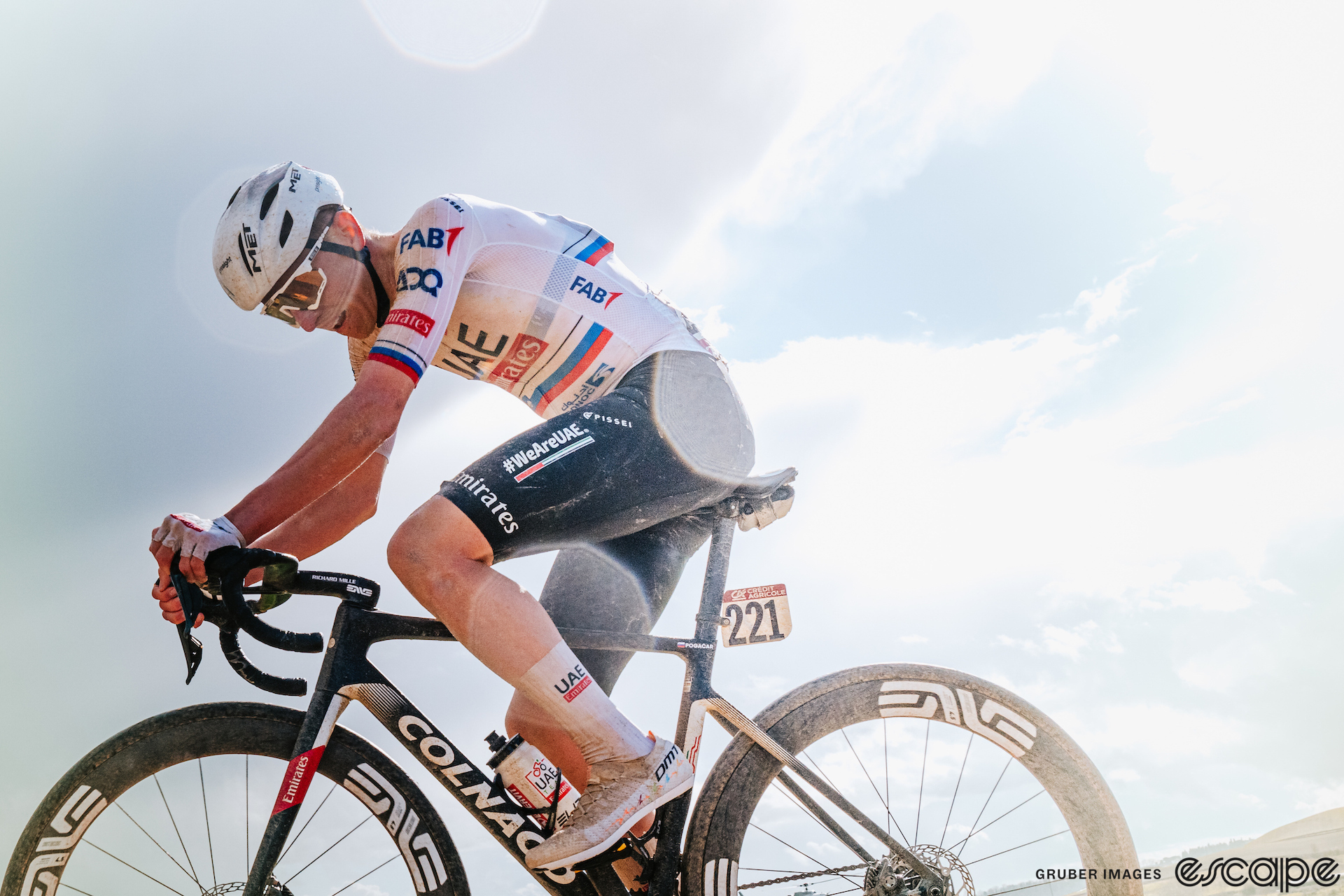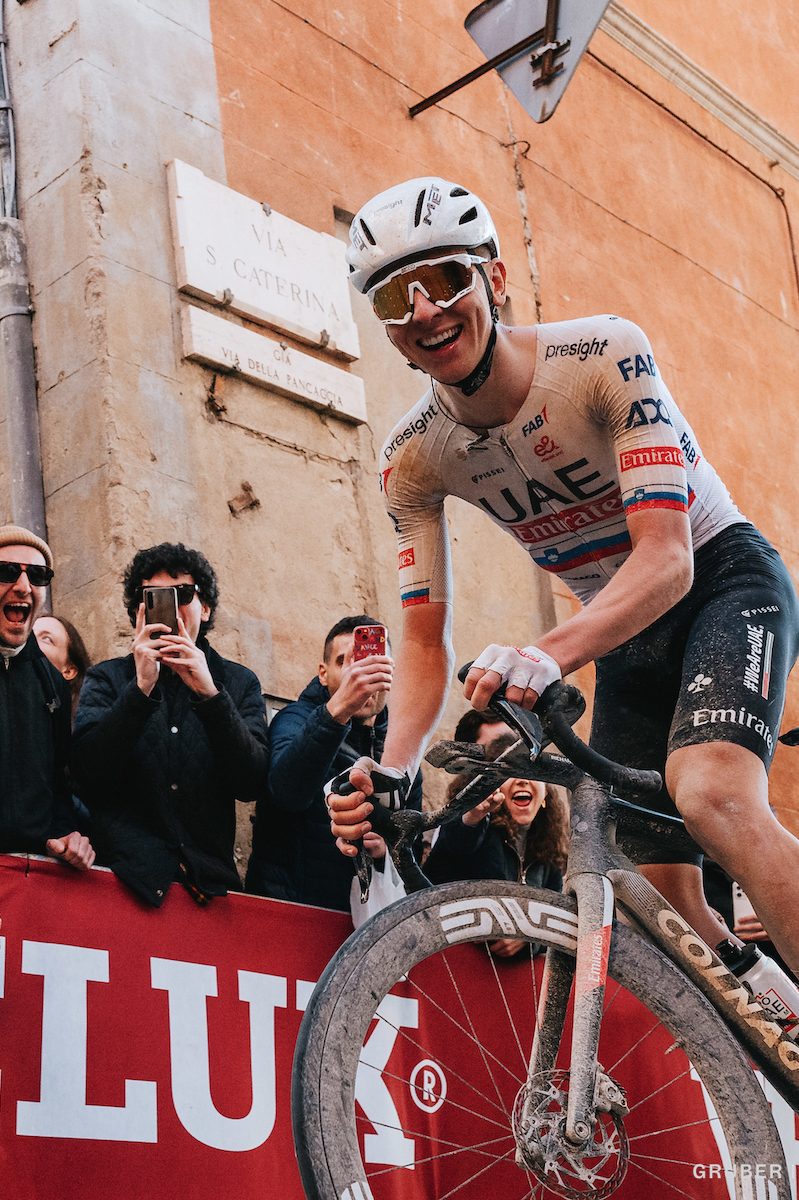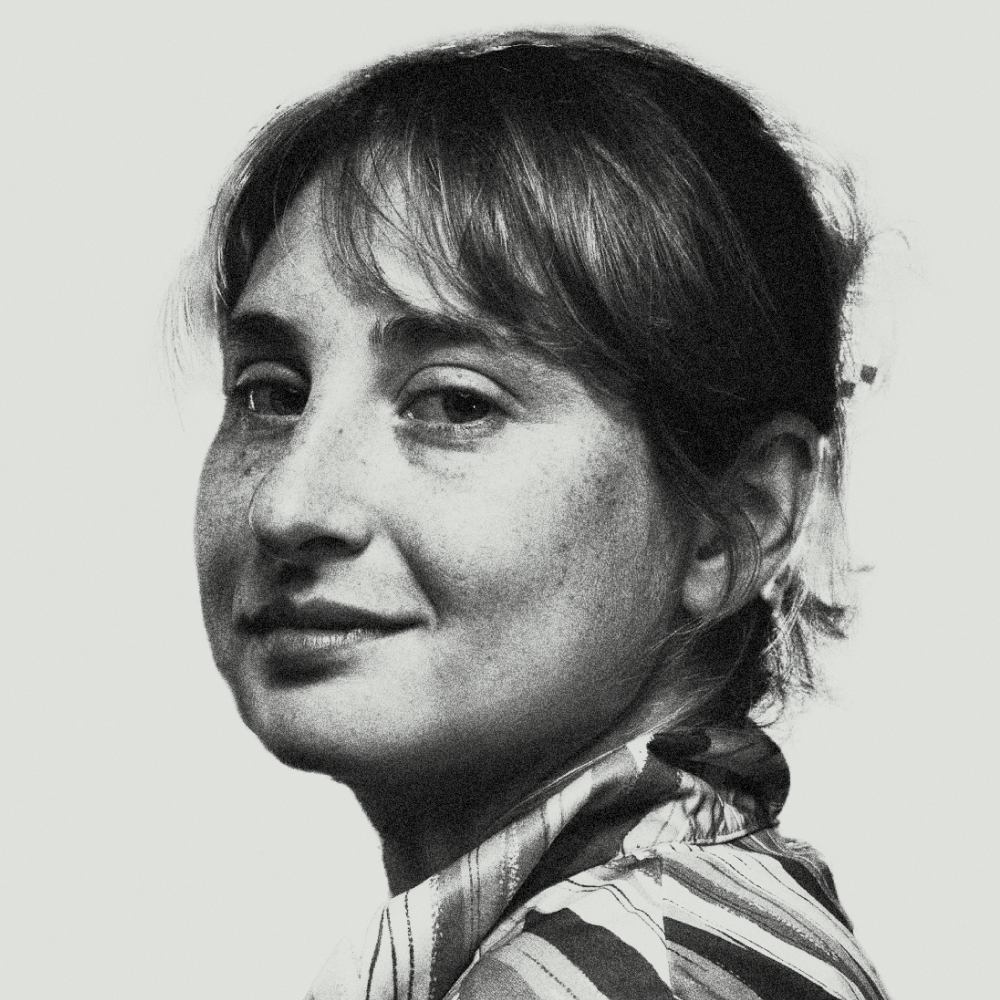Before I started writing this, I wondered whether there was really a point to writing about an event in which one thing of great consequence happened.
Yes, you might say, many things of smaller consequence happened. The commentators tend to focus on that, hunting for substories, for narratives that have more twists and turns, for a set of lurking strategies. It’s their job to keep you engaged, to manufacture excitement when even in the peloton there seems to be quite little of it.
I’m not sure why, but I no longer have the patience for doing this kind of storytelling. I grow tired of insisting that something is happening when it is not. Perhaps my exhaustion owes itself to the fact that sometimes there really is a subplot in a race – an extraordinary fight by a young rider on debut, a heroic but tragically foiled last stand of a retiring star, a concerted effort by a breakaway, for example – and to maintain that the ordinary, oft-repeated inability for a pursuing group to cohere behind a strong rider out front is the same as these kinds of narratives is a false equivalency. Perhaps I’m just not as excitable as I used to be and don’t feel the need to evangelize.
In the 2024 edition of Strade Bianche, one thing happened: Tadej Pogačar, as he said he would in the pre-race interview, escaped from the peloton on the five-star Monte Sante Marie sector with 80 kilometers left in the race. Then he finished it.
Toms Skujiņš from Lidl-Trek, a beloved fan favorite and a man certainly worthy of the honor, finished second on what can only be described as a long day out. He only slightly bested the ebullient young Maxim Van Gils from Lotto Dstny, who finished third after going off on one of the most hopeless chasse patates of all time after Pogačar’s initial attack, and then sensibly resting himself in the chase before a final long move with 40 km to go.
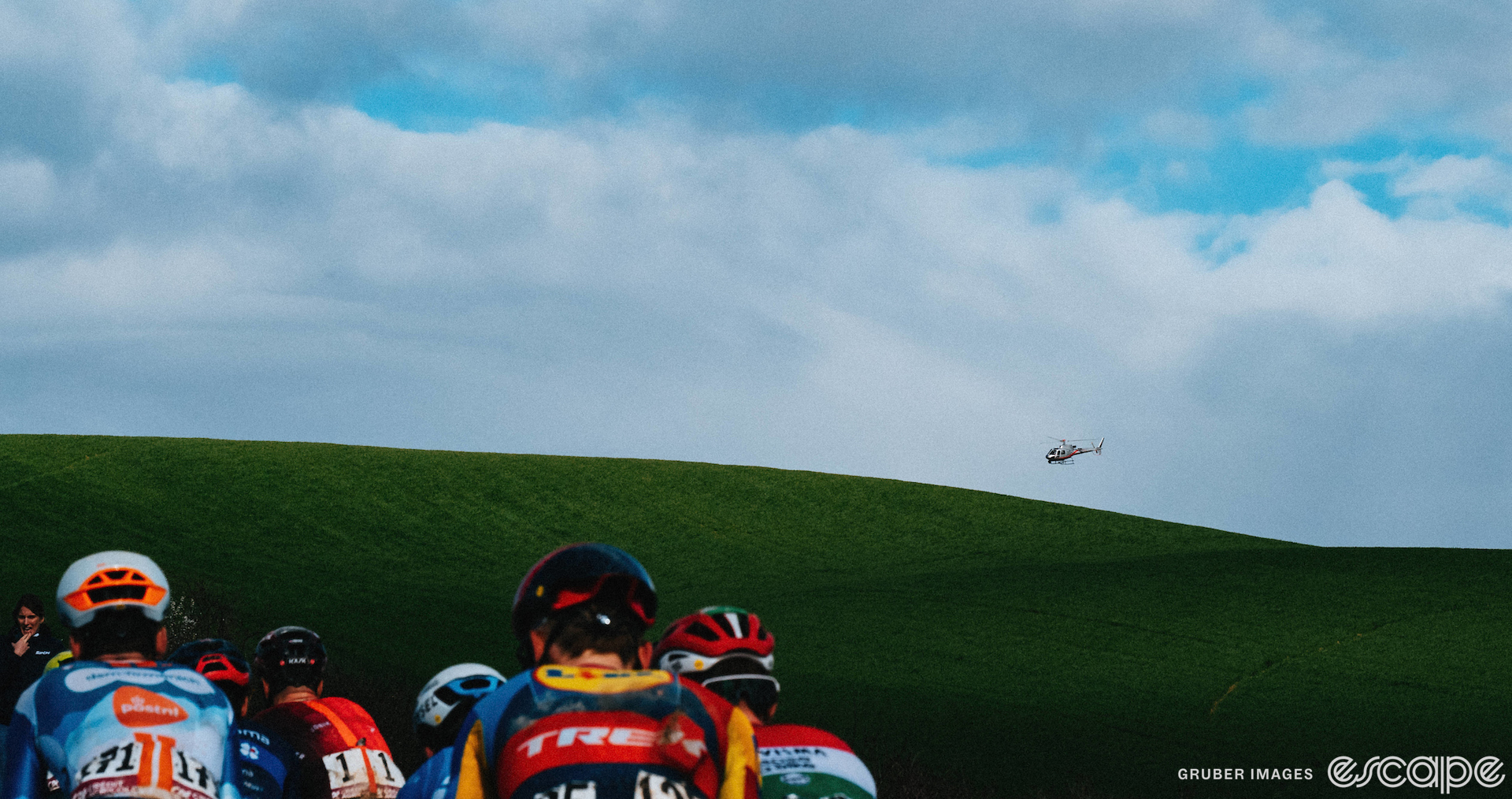
In cycling, most of the time it is well worth arguing one’s case in terms of what tactics worked or did not work on a given race. In this case, there were no tactics, really, of which to speak. The simple fact is that no one could go with Pogačar at the 80 km-to-go mark. No one at all. There was a deep futility in the 10 kilometers that followed the attack, in which the time between lone leader and peloton stretched into whole minutes. The amount gained in the immediate aftermath of the launch rapidly became, as we all saw, unbridgeable. Pogačar did not open up a gap. He dynamited a chasm.
Nathan van Hooydonck, on a stellar debut as TV commentator, said pretty much the same thing. To paraphrase: because everyone knew when Pogačar was going to attack, they should have been on his wheel the entire time. In an ideal world, they would have sent credible counter attackers out to try and spark the kind of rapid-fire, “oh shit” free-for-all that brings a rider like Pogačar back. But this did not happen. That this didn’t happen, I would not, however, call a tactical failure, “group two syndrome,” or what have you. What I saw was abject resignation.
It is possible that this race was lost before the pictures began, that the riders like Matej Mohorič or Christophe Laporte or defending champion Tom Pidcock who are able to make critical moves at such critical times were already tired from the rain and hail, from the white gravel, from the blistering pace of UAE Team Emirates that diminished any chance of a long-term breakaway.
One can also argue that the racing dynamic would have been different had Mathieu van der Poel or Wout van Aert shown up. But never before have I gotten such a profound sense of preclusion from a solo attack made astonishingly far out.
Maybe I shouldn’t be surprised at this. Even though I should know better, even though I should believe Pogačar when he says he is going to do something crazy (this itself might have been a bit of psychological trickery) I simply did not think that his attack would not spur a frantic chase to bridge it; nor did I believe he could make it to the end from so far away, despite the fact that he’d proved himself once before at the same race two years ago when he set the high mark with an attack at 50 km to go. To go from 80 km out seemed like too much to ask for, too much space in which anything at all could happen.
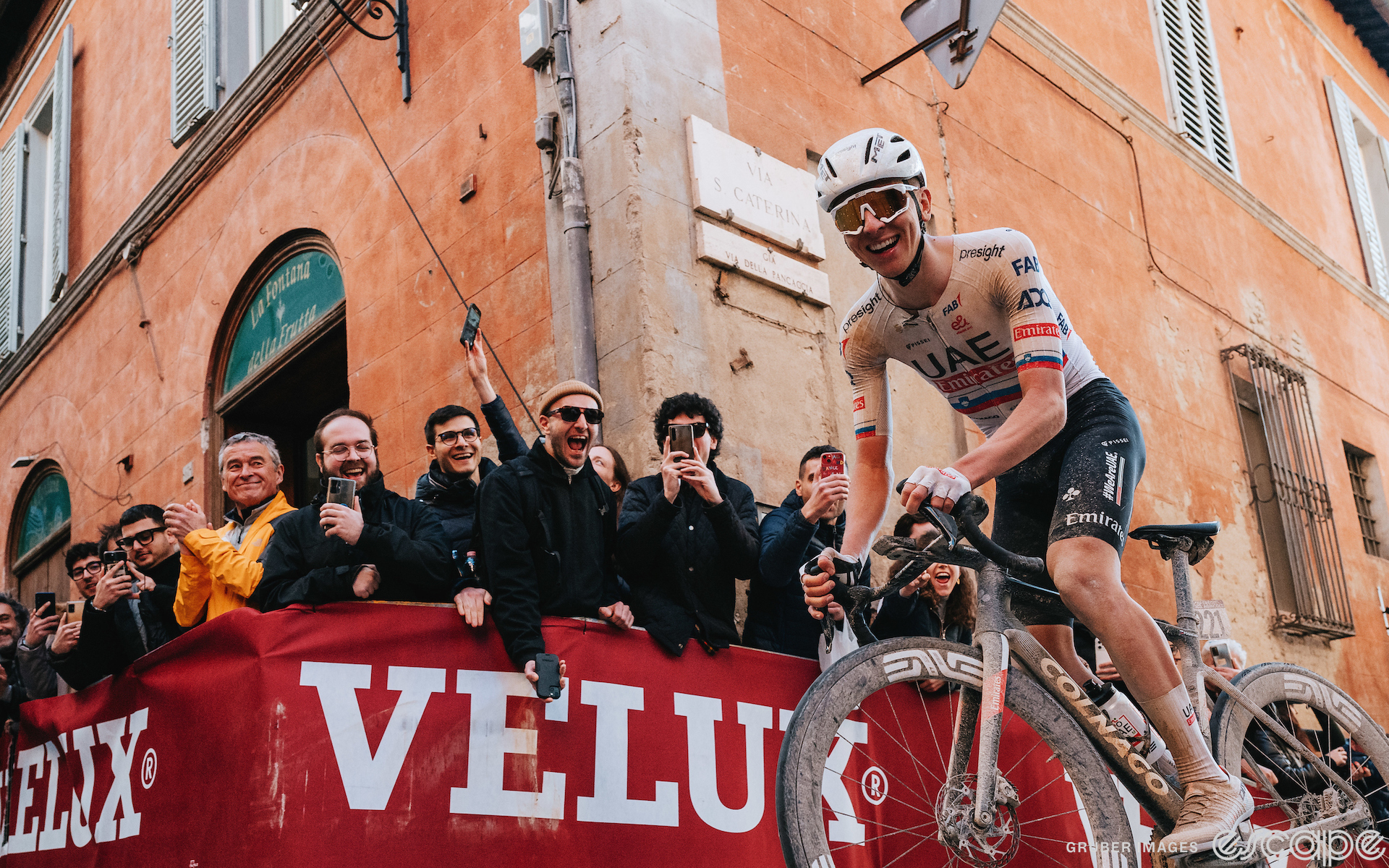
I believe, to some extent, in hubris. While the race was, unbeknownst to me, very much over with 80 km to go, I watched for a full 90 minutes expecting Pogačar to expire or puncture or both. Still, he kept riding, plain-faced, grimacing a bit in the end, unbothered. There was no comeuppance for his boldness.
He didn’t even struggle like he did in last year’s Lombardia, where he warred against the limits of his own body, a fight worth watching even if his time gap was such that it could not be bridged by others. Here, Pogačar was only ever alone – alone with himself and with the cypresses and the slate-colored sky and the absolute assurance of his mission and his capability to fulfill it. He reduced the so-called “sixth Monument” to another day in Italy, another day on the bike, to something utterly ordinary.
Indeed, it strikes me sometimes how alone Pogačar can seem. He is, by all means, a fun-loving, gregarious person, impish at times, serene at others. I have seen him surrounded by teammates, by friends and family; even his enemies have a hard time hating him.
But when Pogačar is by himself, whether on the bike or just standing somewhere waiting, he can appear so utterly alone, pensive, locked into some deep and impenetrable interiority. A man who seems so approachable becomes, by way of simple solitude, unreachable.
Pauline Ballet’s award-winning photo of him waiting behind Vingegaard at a jersey-autograph podium at last year’s Tour is a perfect encapsulation of this: Pogačar, in his own world, lost in his own thoughts, his gaze such that even filmed through the candid lens of a camera, we feel left out of it. On the white roads, at the head of the race for an unfathomably long time, the peloton must have felt similarly excluded, must have thought something along the same lines: he’s in a league of his own.
What’s so unbelievable about the 80 km solo was not that Pogačar did it, but that nothing stopped him.
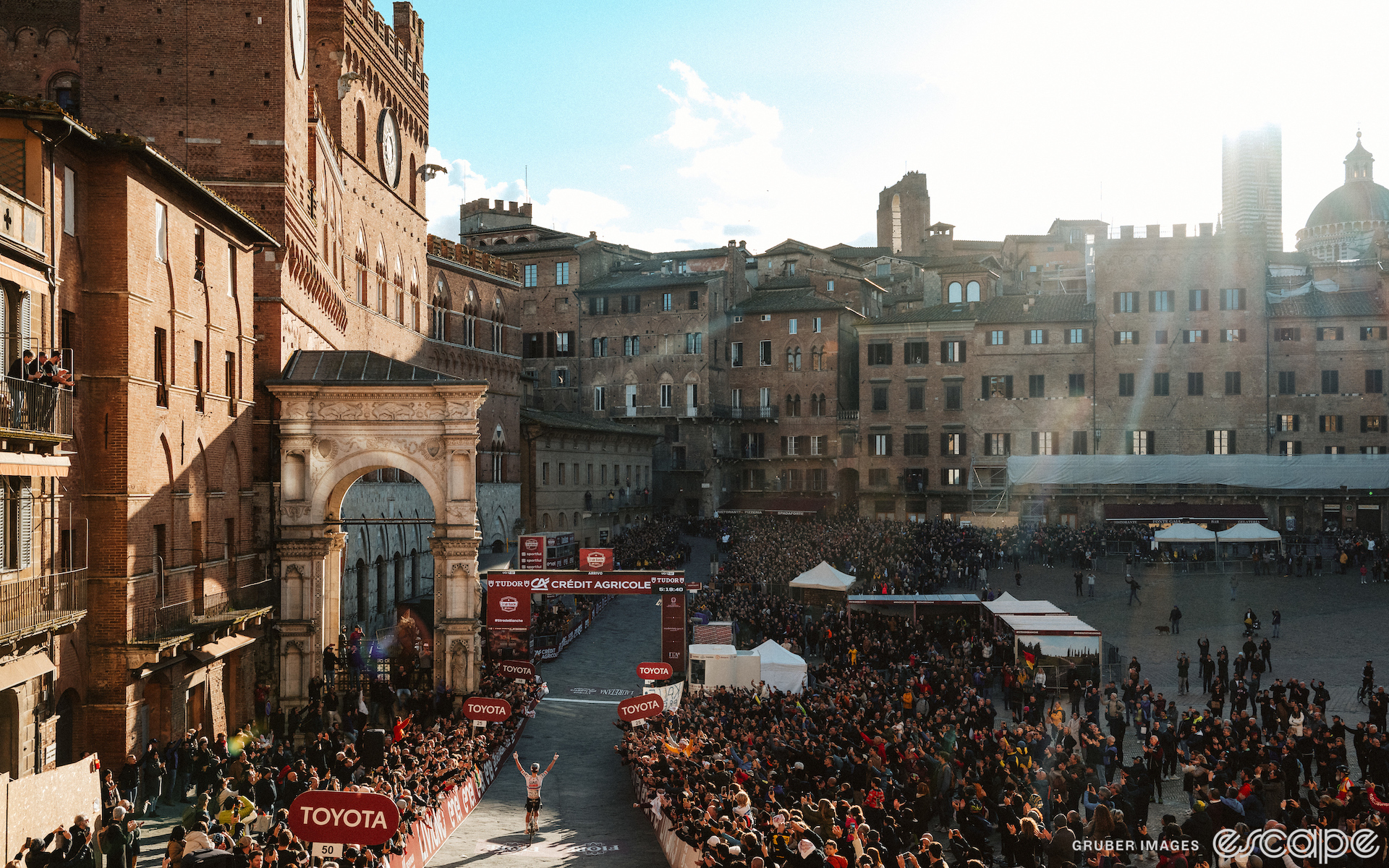
Did we do a good job with this story?
